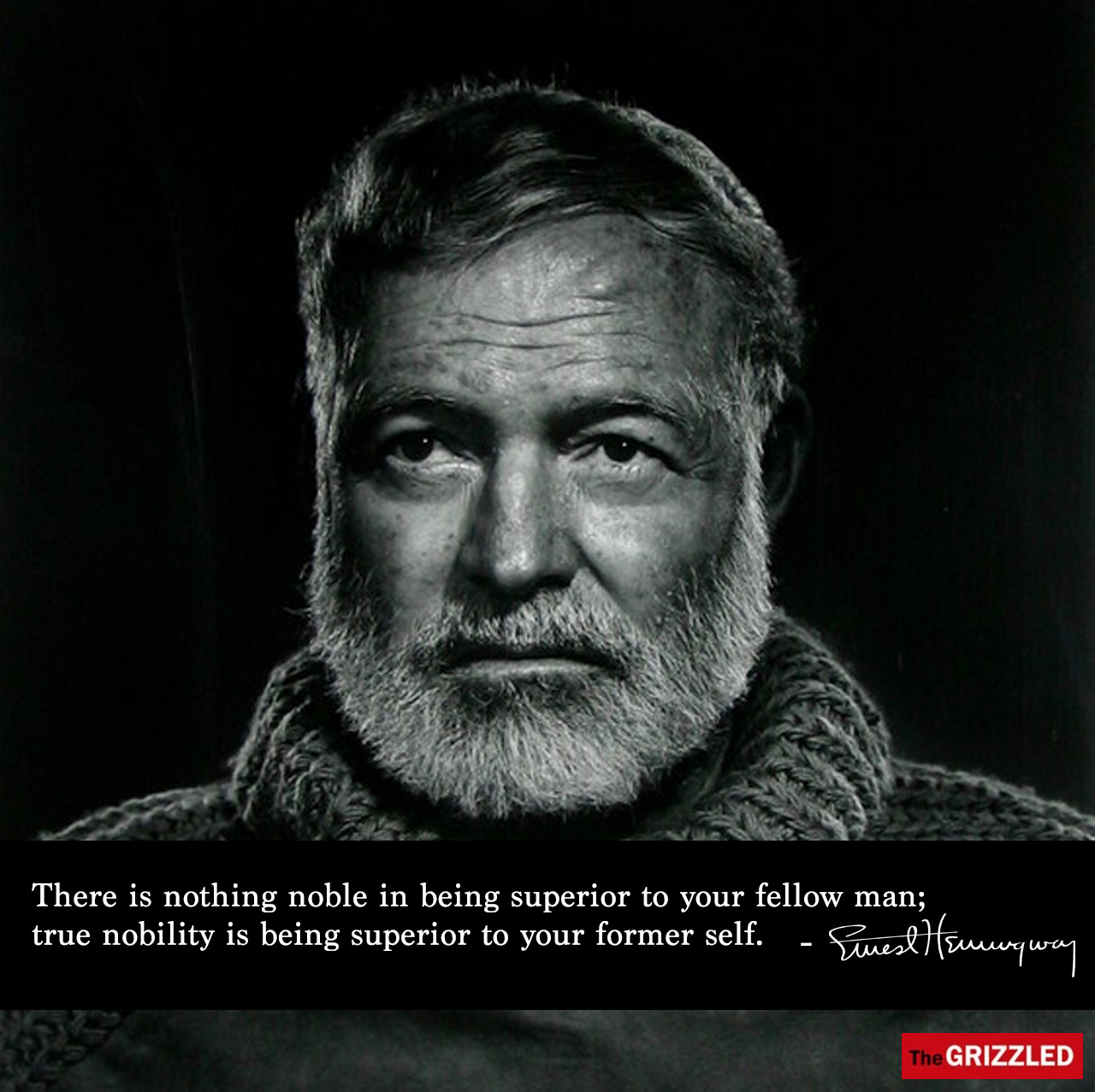Quite possibly the most interesting man ever to walk this Earth; Ernest Hemingway was the ultimate character. A war hero, a traveler, a sportsman and one of the true dignitaries of the 20th century literary era, Hemingway always knew how to get to the heart of an issue. He’s remembered as one of the greatest writers ever. Here’s some of his most notable quotes and facts from his fascinating life. Enjoy!

“There is nothing noble in being superior to your fellow man; true nobility is being superior to your former self.”
Did you know that Ernest Hemingway has won multiple medals for his wartime efforts? Hemingway operated an ambulance in Italy during World War I, and on July 8, 1918, mortar fire finally called his number—yet he managed to help an Italian soldier reach safety while seriously wounded. The action earned him an Italian Silver Medal of Valor.
NEXT: What other medal was he awarded?
